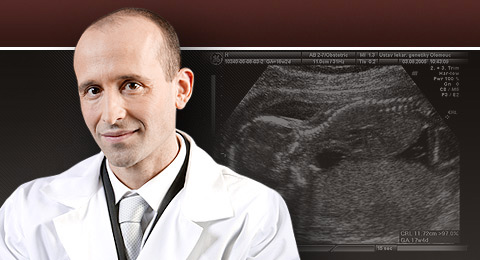Ľubušký M., Holusková I., Procházka M., Hálek J., Klásková E. Management těhotenství s rizikem rozvoje hemolytické nemoci plodu a novorozence. Postgrad. Med. 2016, 18 (4), s. 352-357. (Management of pregnancies at risk of hemolytic disease of the fetus and newborn)
ABSTRACT
In the Czech Republic, all pregnant women in their 1st trimester undergo the red blood cell antibody screening. The screening is positive in about 5% of women (5000 women a year in the Czech Republic), but only in about 1.5% of them (1500 women a year) the clinically significant alloantibody is identified. However, the fetuses are at risk of the hemolytic disease only if the complementary antigen is present on their erythrocytes. This is the case of about 0.5% of them (500 fetuses a year). The presence of the complementary antigen can be assessed noninvasively by genotyping from cell-free fetal DNA circulating in the peripheral blood of pregnant women. The severe hemolytic disease of the fetus that requires intrauterine blood transfusion up to the 35th week develops only in about 5–10% of them (25–50 fetuses a year). The severe fetal anemia can be predicted noninvasively by the Middle Cerebral Artery Peak Systolic Velocity measurement; therefore cordocentesis should be performed only in these specific cases.

Contact
Professor Marek Lubusky, MD, PhD, MHA
THE FETAL MEDICINE CENTRE
Department of Obstetrics and Gynecology
Palacky University Olomouc, Faculty of Medicine and Dentistry
University Hospital Olomouc
Zdravotníků 248/7, 779 00 Olomouc, Czech Republic
Tel: +420 585 852 785
Mobil: +420 606 220 644
E-mail: marek@lubusky.com
Web: www.lubusky.com


